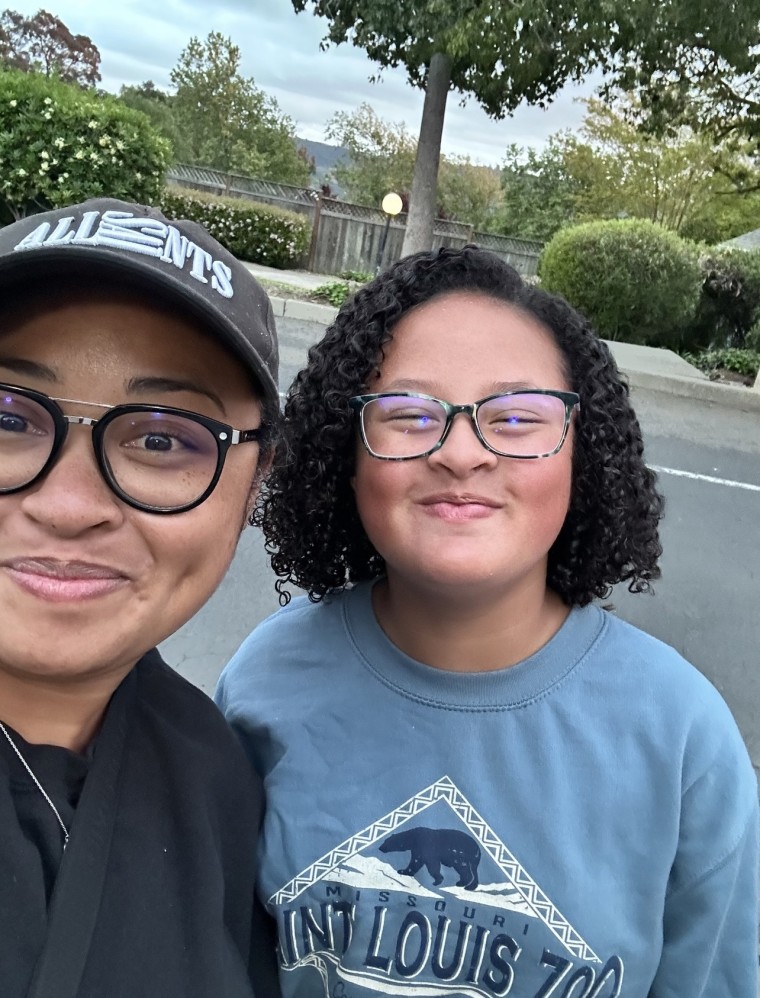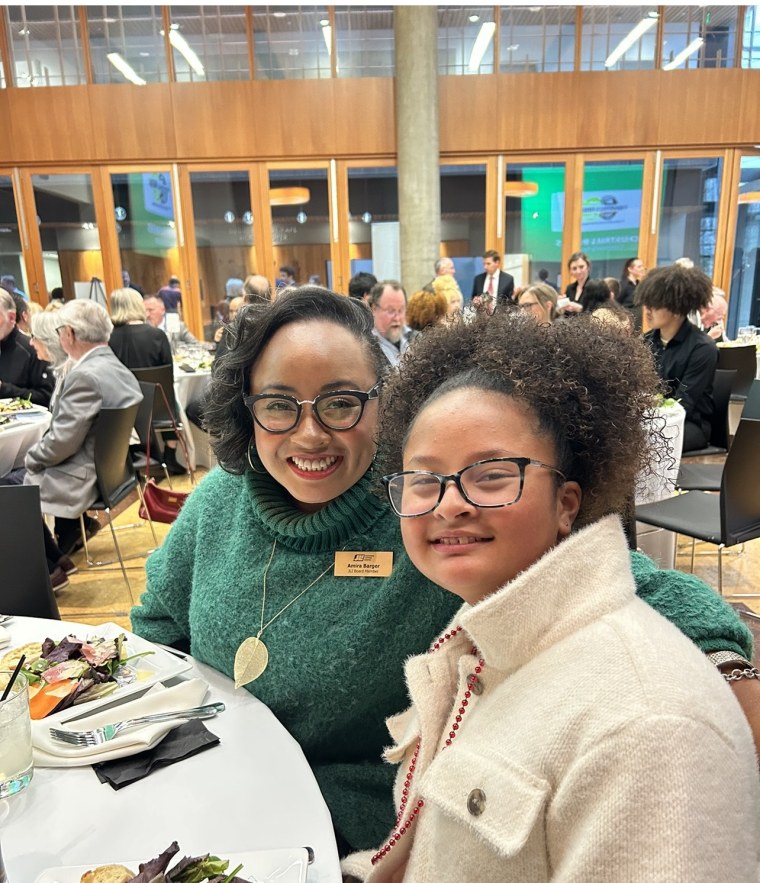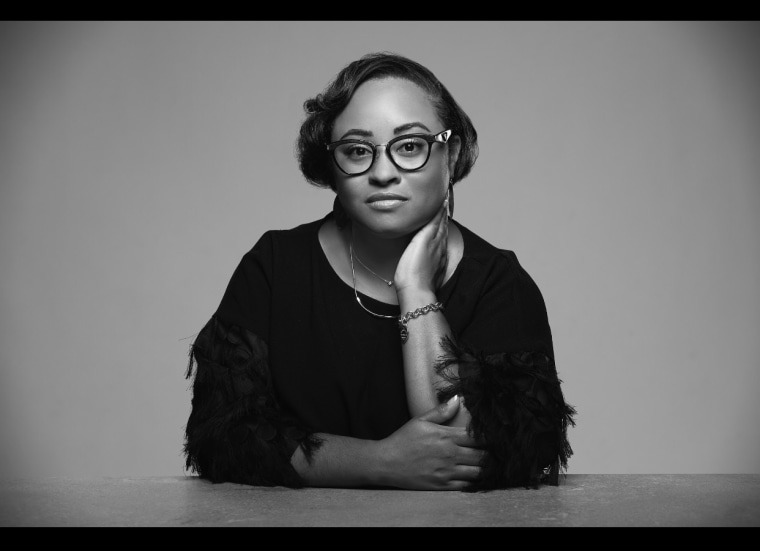My daughter, Audrey, recently finished 4th grade, and we’ve reached the point where family plans must take her social calendar into account. From swim team to piano to play dates, she consistently keeps us (mostly my husband, who serves as the primary chauffeur in our family) taxiing her around town.
Each time my daughter and husband leave the house, I usually follow their parting chorus of “Goodbye, we love you,” with “Love you too! Don’t do anything I wouldn’t do -- which isn’t much!” Their response often includes laughter, eye-rolling, or shaking their heads in reluctant resignation.
My reply about taking risks, however, wasn’t just an off-the-cuff statement. It was born from a mantra I scribbled in a notebook years ago when a journal prompt posed the question: “If you could tell your younger self one thing, what would it be?”

I wrote that I wished I had taken more risks and let myself embrace those “unthinkable” experiences (i.e., seeing a rated-R movie, sneaking out of the house, cursing frivolously, etc.) that others told me to be afraid of, too steeped in worry to have any experience living outside the prescribed lines. “In my short 25 years, I’ve come to learn that wrinkles and gray hair grow in inverse relation to risk and wonder. They are signs of having truly lived,” I wrote.
It was a response rebuking the caution and self-preservation instilled in me over the years. I was raised in a conservative household in Guam, where my parents were ministers. Even once we moved back stateside, my strict upbringing kept me within a bubble formed for me by the evangelical Christian values my parents espoused. I was scared of making mistakes and accustomed to burying both my questions and my feelings in exchange for a prescribed set of rules that were promised to guarantee a life free of unforgiving mistakes. It was only in my late 20s that I learned to sit with discomfort, to ask questions, and to understand that making mistakes is where we experience the kind of growth that brings both grief and most importantly - gains.
For Audrey, I want her to know that, while it is wise to evaluate our choices to try and avoid irreparable mistakes, it is, in fact, our mistakes that bring emotional agility and wisdom, allowing us to embrace life in its fullness.
As a mom, I am keenly aware that time is not on my side. In 2031, Audrey will be an adult in the eyes of the law. It’s hard to imagine that I only get eight more summers. Eight more summers to teach her what it means to make magic, make memories, and make mistakes. Eight more years before she will cease to walk through the front door with her backpack and half-eaten lunch. Instead, she will venture out into the big world, making her own decisions about what comes next, and navigating her own mistakes. Our best hope as parents is that we’ve prepared them well. As a Black mom, that preparation means raising a child in a world where many will view her as a threat - and with the knowledge that any mistakes she might make will carry a far heavier weight.
To err is human, but if you’re Black, there’s an added dimension. It is just another reality of existing in a world where the present cultural norms interpret our personal agency and autonomy quite differently. Especially as Black women.
I think about basketball player Angel Reese and her LSU teammates, and how they were robbed of the magic and memory from their national championship win earlier this year. The moment was overshadowed by unwarranted outrage at the quid pro quo taunting by Reese to opponent Caitlin Clark. During the final game of the Women’s Final Four, Reese signaled she was getting a championship ring, and, as Clark had done throughout the tournament, did a John Cena “You Can’t See Me” celebration.
When Clark did it, she was praised as a fierce competitor. But when Reese did it, she was called a “f—ing idiot” and a “classless piece of s—”. It’s just one example of the lived experience of Black women and girls where our movements are labeled “mistakes” and are policed very differently in a society that feels entitled to dictate our behavior. The injustice is compounded if we should dare to disrupt the status quo by calling attention to our plight.
Our movements as Black people are constantly scrutinized, and we are often penalized for commonplace “mistakes” such as riding a bike, driving a car, having a barbeque in a park, selling water bottles, and playing outside. It’s a world in which the “mistake” of going for a jog in your own neighborhood can result in a death sentence. I am, of course, being facetious. These everyday actions are not by definition, common sense, or any stretch of the imagination actual mistakes.
Ironically, I worry that one of the greatest barriers to progress that we face is people being afraid to make mistakes. Some are so devoted to order that they are afraid to rock the boat. For all of the anti-racism book clubs, unconscious bias training, philanthropic initiatives, think pieces, and any other number of allyship actions, they have announced their desire for racial justice and retreated into the privilege of inaction. It’s an option we as Black people are never afforded.
Actual mistakes in everyday life - like missing a deadline, speaking out of turn, making a choice that causes someone you care for harm, choosing to people-please at the expense of self - are often not afforded to Black women without intense scrutiny and character assassination. Greater scrutiny is handed down for workplace mistakes - like refusing to take risks in our careers, accepting a job that does not suit us, or a missed financial forecast - for which our advancement is harmed.

I’ve written about the different standards Black women are held to, a standard that can be understood through phenomenons like the Glass Cliff, in which women from historically underrepresented identities are placed in poorly performing companies and set up to fail. Further proof can be found in the degrees and certifications behind many Black women’s names, mine included. Many Black women embody the adage of exceptionalism: “twice as good, to get half as much” - a reality brought to light once more by the recent SCOTUS decision to dismantle affirmative action.
I teach my daughter that it is necessary to make mistakes. I openly share those mistakes I wish I had made more of - daring to drive slightly above the speed limit and talking back. But more so, I speak to her about the validity of asking questions, expressing feelings, and exploring gray areas - the behaviors that I regrettably shied away from early on. I’ve said to her, “‘Because I said so’, is not reason enough, I want you to challenge me if I ever express that”. We consistently have conversations about how for too long, failing to meet standards of perfection - often standards dictated by others - and any admission of mistakes has been weaponized against us as Black women and girls, a millstone meant to drag us down forever. I reject that for you, for me, for my daughter. Mistakes are ours to make too. It is how we respond that matters.
Looking back on that journal entry, I wanted my younger self to get the chance to frivolously make magic, make memories, and make mistakes - to live life fully. And now, as a parent, it is the hope I wish for my daughter. To be clear, I do not mean a journey free of consequences. But rather the opportunity to embrace her mistakes free from the burden of undue expectations where any misstep, real or perceived, can have dire results. There can be great value in mistake-making, beauty even. In an imperfect world, control is impractical, excellence elusive, and mistakes are nothing more than experience gained in the inexplicable whimsy we call becoming.
